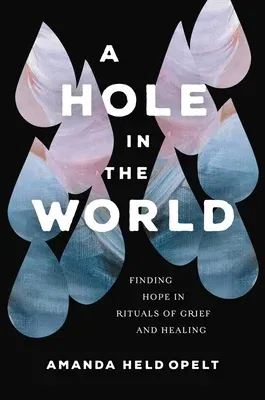In a raw and inspiring reflection on grief--selected by Publishers
Weekly as one of the best books of the year--a mourning sister
processes her personal story of loss by exploring the history of
bereavement customs.
When Amanda Held Opelt suffered a season of loss--including three
miscarriages and the unexpected death of her sister, New York Times
bestselling writer Rachel Held Evans--she was confronted with sorrow she
didn't know to how face. Opelt struggled to process her grief and accept
the reality of the pain in the world. She also wrestled with some
unexpectedly difficult questions: What does it mean to truly grieve and
to grieve well? Why is it so hard to move on? Why didn't my faith
prepare me for this kind of pain? And what am I supposed to do now?
Her search for answers led her to discover that generations past
embraced rituals that served as vessels for pain and aided in the
process of grieving and healing. Today, many of these traditions have
been lost as religious practice declines, cultures amalgamate, death is
sanitized, and pain is averted.
In this raw and authentic memoir of bereavement, Opelt explores the
history of human grief practices and how previous generations have
journeyed through periods of suffering. She explores grief rituals and
customs from various cultures, including:
-
the Irish tradition of keening, or wailing in grief, which teaches
her that healing can only begin when we dive headfirst into our grief
-
the Victorian tradition of post-mortem photographs and how we struggle
to recall a loved one as they were
-
the Jewish tradition of sitting shiva, which reminds her to rest in
the strength of her community even when God feels absent
-
the tradition of mourning clothing, which set the bereaved apart in
society for a time, allowing them space to honor their grief
As Opelt explores each bereavement practice, it gives her a framework
for processing her own pain. She shares how, in spite of her doubt and
anger, God met her in the midst of sorrow and grieved along with her,
and shows that when we carefully and honestly attend to our losses, we
are able to expand our capacity for love, faith, and healing.

